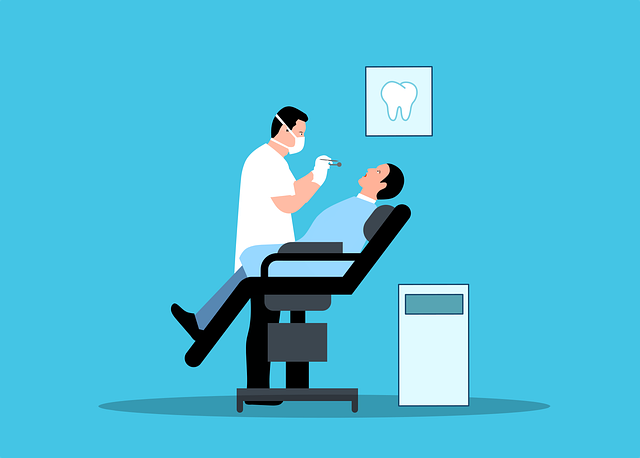Attorneys for Medical Bills: Navigating After a Personal Injury

Introduction
Dealing with medical bills after a personal injury can be overwhelming. This guide provides expert insights on managing healthcare costs, understanding insurance, and seeking legal assistance when necessary.
Dr. Sarah Johnson, a healthcare policy expert, notes: “Understanding your rights and options is crucial when facing significant medical expenses after an injury.”
Understanding Your Medical Bills

Decoding the Charges
Medical bills can be complex. Key components include:
- Service descriptions
- Billing codes
- Dates of service
- Charges for each service
“Always review your bills carefully,” advises Michael Brown, a medical billing advocate. “Errors are more common than you might think.”
Common Billing Errors
- Duplicate charges
- Incorrect codes
- Charges for services not received
- Upcoding (billing for more expensive services)
What to Expect from the Medical Billing Process
The medical billing process can be complex and overwhelming, especially for individuals already dealing with the stress of a medical condition or injury. Here’s what you can expect from the medical billing process:
- Initial Billing: After receiving medical treatment, you will receive a bill from your healthcare provider. This bill will include the total amount due for the services rendered. Reviewing this bill carefully is essential to ensure all charges are accurate.
- Insurance Claim: If you have health insurance, your healthcare provider will submit a claim to your insurance company. The insurance company will then review the claim and determine its cover amount. This step can take some time, so patience is vital.
- Explanation of Benefits (EOB): Your insurance company will send you an EOB, which explains the amount they will cover and the amount you are responsible for paying. This document is crucial for understanding your financial responsibility and should be reviewed thoroughly.
- Payment: You will be responsible for paying the amount not covered by your insurance company. This may include deductibles, co-pays, and any services not covered by your policy.
- Follow-up Billing: If you have an outstanding balance, your healthcare provider may send you follow-up bills to remind you of the amount due. Keeping track of these bills and communicating with your provider to arrange a payment plan is essential.
Understanding these steps can help you navigate the medical billing process more effectively and avoid unnecessary stress.
Insurance Coverage and Medical Bills

Understanding Your Policy
Know your:
- Deductible
- Co-pays
- Out-of-pocket maximum
- Network restrictions
Understanding your relationship with your health insurance provider is crucial, especially when negotiating medical bills and potential reimbursements after receiving a settlement.
Lisa Thompson, an insurance specialist, explains: “Many patients are surprised by what their insurance doesn’t cover. Always clarify your benefits before treatment.”
The Role of Insurance Companies in Medical Billing
Insurance companies play a crucial role in the medical billing process. Here’s how they fit in:
- Reimbursement: Insurance companies reimburse healthcare providers for the services rendered to their policyholders. This reimbursement is based on the terms of your health insurance policy and the agreements between the insurance company and the healthcare providers.
- Negotiation: Insurance companies negotiate rates with healthcare providers to determine the amount they will cover for specific services. These negotiated rates can significantly impact the amount you owe out-of-pocket.
- Claims Review: Insurance companies review claims to determine the amount they will cover and the amount the policyholder is responsible for paying. This review process ensures that the services billed are covered under your policy and that the charges are appropriate.
- Payment: Insurance companies pay healthcare providers for the services rendered to their policyholders. This payment is typically made directly to the provider, reducing the amount you need to pay out-of-pocket.
Understanding the role of insurance companies can help you better navigate the medical billing process and advocate for yourself when dealing with medical expenses.
Dealing with Insurance Denials
If your claim is denied:
- Review the denial reason
- Gather supporting documentation
- File an appeal within the specified timeframe
Options for Managing Medical Debt

Negotiating with Healthcare Providers
Many hospitals offer:
- Discounts for cash payments
- Financial assistance programs
- Payment plans
“Don’t be afraid to negotiate,” says Robert Garcia, a healthcare financial counselor. “Many providers are willing to work with patients on payment options.” Additionally, hiring a medical billing lawyer can be beneficial in negotiating with healthcare providers, as they have the expertise to identify errors, manage appeals, and effectively negotiate charges.
Strategies for Reducing Medical Bills
If you’re struggling to pay your medical bills, there are several strategies you can use to reduce the amount you owe:
Negotiate with Your Healthcare Provider: Reach out to your healthcare provider to see if they can offer any discounts or payment plans. Many providers are willing to work with patients to make medical bills more manageable.
Apply for Financial Assistance: Many healthcare providers offer financial assistance programs to help patients who are struggling to pay their bills. These programs can provide significant financial relief and reduce your overall medical debt.
Use a Medical Billing Advocate: A medical billing advocate can help you navigate the medical billing process and negotiate with your healthcare provider and insurance company. These professionals are skilled at identifying billing errors and securing reductions in medical costs.
Consider a Payment Plan: If you’re unable to pay your medical bill in full, consider setting up a payment plan with your healthcare provider. This can spread out the cost over time, making it more manageable to pay off your medical expenses.
By implementing these strategies, you can reduce your medical bills and alleviate some of the financial stress associated with medical debt.
Medical Bill Advocates
These professionals can:
- Review bills for errors
- Negotiate with providers
- Help you understand your insurance coverage
Choosing the Right Medical Debt Relief Attorney
If you’re struggling to pay your medical bills, working with a medical debt relief attorney may be helpful. Here are some tips for choosing the right attorney:
- Experience: Look for an attorney who has experience handling medical debt cases. An experienced attorney will be familiar with the nuances of medical billing and the legal options available.
- Knowledge of Medical Billing: Choose an attorney who has a thorough understanding of the medical billing process and the laws that govern it. This knowledge is crucial for effectively negotiating with healthcare providers and insurance companies.
- Communication: Select an attorney who is responsive to your needs and communicates clearly about your case. Good communication is essential for ensuring that you understand your options and can make informed decisions.
- Fees: Be sure to ask about the attorney’s fees and how they will be paid. Understanding the cost upfront can help you avoid surprises and ensure you can afford the legal assistance you need.
- Reputation: Research the attorney’s reputation online and ask for referrals from friends or family members. A reputable attorney will have positive reviews and a track record of helping clients with medical debt.
By choosing the right medical debt relief attorney, you can get the support you need to manage your medical bills and find financial relief.
Legal Options for Medical Bills from Personal Injuries
When to Consider Legal Action
Consider consulting a personal injury attorney if:
- Your injuries resulted from someone else’s negligence
- Insurance isn’t covering all your medical expenses
- You’re facing long-term medical costs
Attorney John Davis advises: “A skilled personal injury lawyer can often help recover compensation to cover medical bills and other damages.”
How Personal Injury Settlements Address Medical Bills
Settlements typically account for:
- Past and future medical expenses
- Lost wages
- Pain and suffering
“It’s crucial to consider long-term medical needs in any settlement,” notes Dr. Emily Chen, a rehabilitation specialist.
Protecting Your Financial Health
Credit Reporting and Medical Bills
As of 2024, unpaid medical bills under $500 no longer appear on credit reports.
Financial advisor Mark Johnson explains: “This change offers significant protection for consumers dealing with medical debt.”
Avoiding Bankruptcy
Steps to avoid bankruptcy:
- Explore all payment options with providers
- Consider medical credit cards (cautiously)
- Negotiate with creditors
- Seek professional financial advice
The Role of Personal Injury Attorneys
Personal injury lawyers can:
- Negotiate with medical providers
- Handle insurance claims
- Pursue compensation from responsible parties
“A good attorney can make all the difference in managing medical bills after an injury,” says legal expert Sarah Thompson.
Conclusion
Managing medical bills after a personal injury requires understanding your rights, exploring all available options, and sometimes seeking professional help. You can navigate this challenging situation more effectively by staying informed and proactive.
FAQs
- Q: Can hospitals refuse treatment if I can’t pay? A: No, emergency rooms must provide treatment regardless of ability to pay.
- Q: How long do I have to pay medical bills? A: Timeframes vary, but most providers offer payment plans for those who can’t pay immediately.
- Q: Will medical bills affect my credit score? A: As of 2024, unpaid medical bills under $500 don’t appear on credit reports.
- Q: Can I negotiate my medical bills? A: Yes, many providers are willing to negotiate, especially for uninsured patients.
- Q: Should I use credit cards to pay medical bills? A: It’s generally not recommended due to high interest rates, but medical credit cards might be an option.
Remember, while this guide provides general information, always consult with financial and legal professionals for advice tailored to your specific situation.
Related Terms: medical records, personal injury law firm, health insurance company, personal injury claims, insurance providers, personal injury settlement, insurance company pays, medical debts













